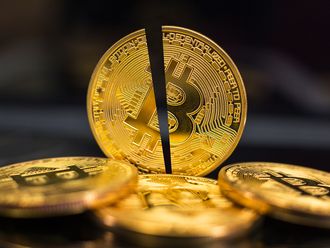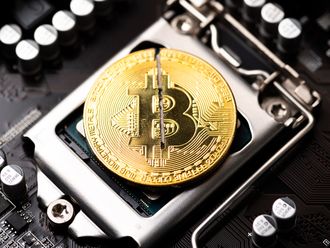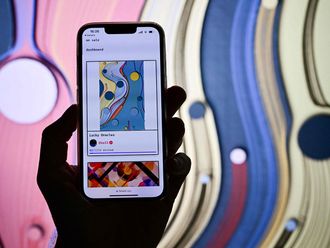Dubai: Innovation and technology adoption are the keys to untangling the global web of trade financing to make trade transactions risks free, according to Baihas Baghdadi, the Managing Director and Global Head of Trade and Working Capital at Barclays.
Earlier this year Barclays executed the first real trade transaction using blockchain technology to transfer documents between Ireland’s Ornua Cooperative, the former Irish Dairy Board and wholesaler Seychelles Trading Co. and Barclays.
The transaction involved Seychelles using a Barclays letter of credit to buy goods from Ornua. Wave’s blockchain technology enabled trade finance documents to be sent backwards and forwards between parties, digitally, circumventing what can be a lengthy process requiring multiple transfers of physical documents using couriers. The transaction is widely seen as the beginning of a transformational change in global trade finance.
“Time has run out for trade finance business in its old fashioned way of moving physically multiple documents across the globe to execute a trade transaction. Technology has changed the way we live. We can’t expect that trade and trade finance to remain in the old world,” said Baghdadi.
Barclays, a pioneer in using blockchain technology in executing trade finance transaction expects to see wide adoption the technology in the next few years making global trade transactions smooth and risk free.
Given that blockchain is a decentralised ledger it helps a lot in the process of uploading and verifying trade related documents almost instantly. “Our objective in trade finance innovation is that we don’t want to build something just for Barclays, rather we want to build something for the industry,” said Baghdadi.
Most of the banking industry, over the last two decades has been trying innovate on their own to deliver better services for their customers. But in the process, these developments have been taking place in xyloses. Trade finance being a global business where the objective is to facilitate trade and accelerate cash flows, Baghdadi believes that the innovations based on blockchain should target the industry as whole.
“One of the biggest headaches in global trade currently is the vast movement of paper required to facilitate transactions. Blockchain is technology that allows parties involved in the trade to verify these documents online on a secure platform. This will revolutionise the speed and security of trade transactions,” said Baghdadi.
The success of the technology will depend on banks, counterparties, regulators and governments across the world that will support it through legal and regulatory frame works.
Considering how long it will take the industry to catch up and help facilitate this trade, Baghdadi anticipates that the process could be driven by industry bodies.
“In my conversations with different banks, there is a massive will for a lot of banks to join us. We want to select early adopters, dedicate energy and resources to them, and prove the validity of the concept. Then, we’d go to industry bodies and government agencies worldwide to take this forward. We have to keep in mind that this is not only about banks, but also importers, exporters, shipping and insurance companies coming together,” he said.











